 W
WVichy France is the common name of the French State headed by Marshal Philippe Pétain during World War II. It was a Puppet state of Nazi Germany. Evacuated from Paris to the resort town of Vichy in the unoccupied "Free Zone" in the southern part of Metropolitan France, it remained responsible for the civil administration of France as well as its colonies.
 W
WHeinrich Otto Abetz was the German ambassador to Vichy France during the Hitler era and a convicted war criminal.
 W
WCounter-admiral Gabriel Paul Auphan was a French naval officer who became the State Secretary of the Navy of the Vichy government from April to November 1942.
 W
WJacques Barnaud was a French banker, businessman and member of the collaborationist Vichy regime during the Second World War.
 W
WJoseph Barthélemy was a French jurist, politician and journalist. Initially a critic of Nazi Germany, he would go on to serve as a minister in the collaborationist Vichy regime.
 W
WRené Belin was a French trade unionist and politician. In the 1930s he became one of the leaders of the French General Confederation of Labour.
 W
WLéon Bérard was a French politician and lawyer.
 W
WMuhammad VII al-Munsif, commonly known as Moncef Bey was the Bey of Tunis between 19 June 1942 and 14 May 1943. He was the penultimate ruler of the Husainid dynasty.
 W
WHenri Paul Arsène Bléhaut was French politician and counter admiral. He was Secretary of State for the Navy and the Colonies from 26 March 1943 to 10 September 1944 in Vichy France.
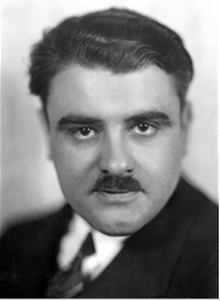 W
WMax Bonnafous was a French sociologist who was Minister of Agriculture and Supplies from 1942 to 1944 in the Vichy government.
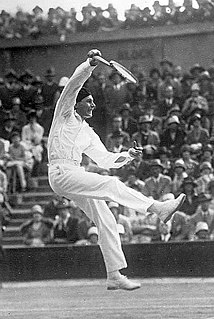 W
WJean Laurent Robert Borotra was a French tennis champion. He was one of the famous "Four Musketeers" from his country who dominated tennis in the late 1920s and early 1930s. Borotra was imprisoned in Itter Castle during the latter years of World War II and subsequently fought in the Battle for Castle Itter.
 W
WRené Bousquet was a high-ranking French political appointee who served as secretary general to the Vichy regime police from May 1942 to 31 December 1943. For personal heroism, he had become a protégé of prominent officials before the war and rose rapidly in the government.
 W
WFernand de Brinon, Marquis de Brinon was a French lawyer and journalist who was one of the architects of French collaboration with the Nazis during World War II. He claimed to have had five private talks with Adolf Hitler between 1933 and 1937.
 W
WMarie-Joseph Canteloube de Malaret was a French composer, musicologist, and author best known for his collections of orchestrated folksongs from the Auvergne region, Chants d'Auvergne.
 W
WRené Carmille was a French military officer, civil servant, and member of the French Resistance. During World War II, in his office at the government's Demographics Department, Carmille sabotaged the Nazi census of France, thus saving tens of thousands of Jewish people from death camps.
 W
WPierre Cathala was a French politician. He served as the French Minister of Finance from 1942 to 1944.
 W
WJean Baptiste Pascal Eugène Chiappe was a high-ranking French civil servant.
 W
WAlfred Denis Cortot was a French pianist, conductor, and teacher who was one of the most renowned classical musicians of the 20th century. He was especially valued for his poetic insight into Romantic piano works, particularly those of Chopin, Saint-Saëns and Schumann.
 W
WJean Louis Xavier François Darlan was a French admiral and political figure. He was admiral of the fleet and Chief of Staff of the French Navy in 1939 at the beginning of World War II. After France signed an armistice with Nazi Germany in 1940, Darlan served in the pro-German Vichy regime, becoming its deputy leader for a time. When the Allies invaded French North Africa in 1942, Darlan was the highest-ranking officer there, and a deal was made, giving him control of North African French forces in exchange for joining their side. Less than two months later he was assassinated.
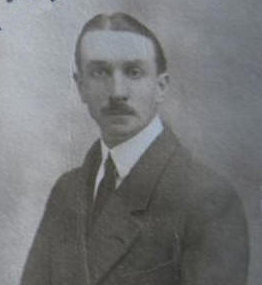 W
WJean Decoux was a French navy Admiral, who was the Governor-General of French Indochina from July 1940 to 9 March 1945, representing the Vichy French government.
 W
WHenri Fernand Dentz was a general in the French Army and, after France surrendered during the Second World War, he served with the Vichy French Army.
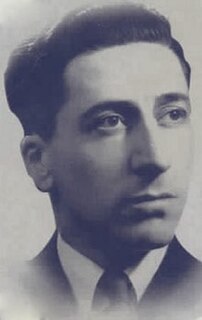 W
WJean d'Azémar de Fabrègues was a French Catholic intellectual and journalist. He was a "traditional" Catholic, rejecting the materialism of both liberal democracy and the totalitarian regimes of the right and the left.
 W
WPierre-Étienne Flandin was a French conservative politician of the Third Republic, leader of the Democratic Republican Alliance (ARD), and Prime Minister of France from 8 November 1934 to 31 May 1935.
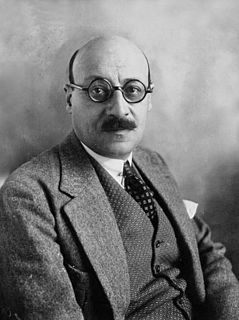 W
WLudovic-Oscar Frossard, also known as L.-O. Frossard or Oscar Frossard, was a French socialist and communist politician. He was a founding member in 1905 and Secretary-General of the French Socialist Party (SFIO) from 1918 to 1920, as well as a founding member and Secretary-General of the French Communist Party (PCF) from 1920 to 1922.
 W
WEugène Frot was a French politician who was Minister of Merchant Marine (twice), Minister of Labor and Social Assurance (twice) and Minister of the Interior in various short-lived cabinets between December 1932 and February 1934. While he was Minister of Interior, right-wing groups organized street demonstrations in Paris on 6 February 1934 in which the police shot dead fourteen people. In the aftermath the cabinet was forced to resign. Frot supported Republican institutions, but by the late 1930s was a committed pacifist. In July 1940 he voted for the constitutional change that established the collaborationist Vichy government. As a result, he was barred from politics after the war.
 W
WClaude-Joseph Gignoux (1890–1968) was a French politician. He served as a member of the Chamber of Deputies from 1928 to 1932, representing Loire. Gignoux became an undersecretary of state. In 1936 he was director of the Journée Industrielle.
José Giovanni was the pseudonym of Joseph Damiani, a French writer and film-maker of Corsican origin who became a naturalized Swiss citizen in 1986.
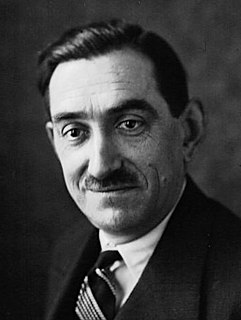 W
WPhilippe Henriot was a French poet, journalist, politician, and Minister in the French government at Vichy, where he directed propaganda broadcasts. He also joined the Milice part-time.
 W
WGaston Henry-Haye was a merchant, French politician and diplomat.
 W
WLéopoldine Clémence Adèle Lucie Jeanne Hugo was a Belgian-born French heiress and socialite during La Belle Époque. She was a granddaughter of French novelist, poet, and politician Victor Hugo. As an adult, Hugo was often written about in the press due to her status in Parisian high society and her connections to other members of the French elite.
 W
WCharles Huntziger was a French Army general during World War I and World War II. He was born at Lesneven (Finistère) of a family of German descent. He graduated from Saint-Cyr in 1900 and joined the colonial infantry. During World War I, he served in the Middle Eastern theatre. He was chief of staff of operations of the Allied Expeditionary Force. In 1918, he participated in the development of General Louis Franchet d'Espèrey's Vardar Offensive against German and Bulgarian forces which would lead to Allied victory and the signing of the Armistice of Mudros in October 1918.
 W
WAlphonse Pierre Juin was a senior French Army general who became Marshal of France. A graduate of the École Spéciale Militaire class of 1912, he served in Morocco in 1914 in command of native troops. Upon the outbreak of the First World War, he was sent to the Western Front in France, where he was gravely wounded in 1915. As a result of this wound, he lost the use of his right arm.
 W
WHelmut Knochen was the senior commander of the Sicherheitspolizei and Sicherheitsdienst in Paris during the Nazi occupation of France during World War II.
 W
WJean de Laborde was a French admiral who had a long career starting at the end of the 19th century and extending to World War II after which he was convicted of treason and sentenced to death. A pioneer of naval aviation in France, he captained the first French aircraft carrier, earned many awards, and held many top posts. He is most well known for his final military act, the scuttling of the French fleet in Toulon, after he refused to order his fleet to join the Allies during the German occupation of Vichy France in World War II, which left his prestige in ruins and led to his arrest and conviction for treason.
 W
WJean Joseph Marie Gabriel de Lattre de Tassigny was a French army general during World War II and the First Indochina War. He was posthumously elevated to the dignity of Marshal of France.
 W
WPierre Jean Marie Laval was a French politician. During the time of the Third Republic, he served as Prime Minister of France from 27 January 1931 to 20 February 1932, and a second time from 7 June 1935 to 24 January 1936.
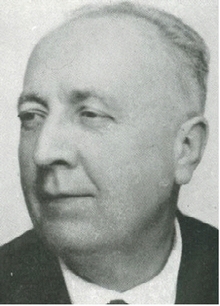 W
WJacques Jules Marie Joseph Le Roy Ladurie was a French agriculturalist and politician. He played a leading role in agricultural syndicates in the 1920s and 1930s. During World War II (1939–45) he was Minister of Agriculture in Vichy France for several months in 1942. He later participated in the French Resistance. After the war he was a deputy for the Calvados from 1951 to 1955, and again from 1958 to 1962.
 W
WHenry Lémery was a politician from Martinique who served in the French National Assembly from 1914–1919 and the French Senate from 1920–1941. Lémery was briefly Minister of Justice in 1934. During World War II (1939–45) he was Colonial Secretary in the Vichy government for three months in 1940 before being dismissed, probably because the Germans disapproved of his mulatto ancestry.
 W
WPaul Jules André Marion was a French Communist and subsequently far right journalist and political activist. He served as the French Minister of Information from 1941 to 1944.
 W
WAdrien Marquet was a socialist mayor of Bordeaux who turned to the far right.
 W
WFrançois Maurice Adrien Marie Mitterrand was a French statesman who served as President of France from 1981 to 1995, the longest time in office in the history of France. As First Secretary of the Socialist Party, he was the first left-wing politician to assume the presidency under the Fifth Republic.
 W
WHenri Moysset was a French historian and politician. He was a scholar of the history of socialism, especially Pierre-Joseph Proudhon. He was the French Minister of State for the Coordination of New Institutions from 1941 to 1942. He was a vocal critic of Pan-Germanism, and he influenced many of Vichy France's social policies.
 W
WMaurice Papon was a French civil servant who led the police in major prefectures from the 1930s to the 1960s, before he became a Gaullist politician. When he was secretary general for the police in Bordeaux during World War II, he participated in the deportation of more than 1600 Jews. He is also known for his activities in the Algerian War (1954–1962), during which he tortured insurgent prisoners as prefect of the Constantinois department, and ordered, as prefect of the Paris police, the severe repression of a pro-National Liberation Front (FLN) demonstration against a curfew that he had "advised."
 W
WPauline Ménard-Dorian was a French woman of letters and a literary salon hostess of La Belle Époque.
 W
WHenri Philippe Benoni Omer Pétain, generally known as Philippe Pétain, Marshal Pétain and sometimes, The Old Marshal, was a French general officer who attained the position of Marshal of France at the end of World War I, during which he became known as The Lion of Verdun. In collaboration with Nazi Germany, he then served as the Chief of State of Vichy France from 1940 to 1944. Pétain, who was 84 years old in 1940, ranks as France's oldest head of state.
 W
WMarcel Peyrouton was a French diplomat and politician. He served as the French Minister of the Interior from 1940 to 1941, during Vichy France. He served as the French Ambassador to Argentina from 1936 to 1940, and from 1941 to 1942. He served as the Governor-General of French Algeria in 1943. He was acquitted in 1948.
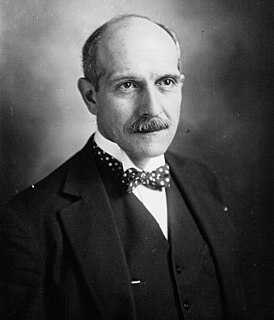 W
WFrançois Piétri was a minister in several governments in the later years of the French Third Republic and was French ambassador to Spain from 1940 to 1944 under the Vichy regime.
 W
WRené-Charles Platon was a French admiral who was responsible for the Colonial Ministry under the Vichy government. He was a passionate supporter of the Révolution nationale of Vichy France, which he wanted to export to the colonies. He was hostile to elected bodies, anti-Semitic, anti-Masonic and supported the back-to-the-soil movement. He saw Britain as the enemy of France. After the Allied invasion of Normandy in the summer of 1944 he was captured by French partisans, given a summary trial and executed.
 W
WLucien Romier was a French journalist and politician.
 W
WGeorges Scapini (1893–1976) was a French lawyer and politician. He served as a member of the Chamber of Deputies from 1928 to 1942.
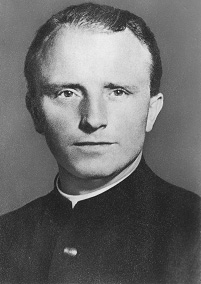 W
WThe Servant of God Franz Stock was a German Roman Catholic priest. He is known for ministering to prisoners in France during World War II, and to German prisoners of war in the years following. The cause for his canonization has been accepted by the Holy See.
 W
WJean-Louis Tixier-Vignancour was a French lawyer and far-right politician. Elected to the National Assembly in 1936, he initially collaborated with the Vichy regime before leaving for Tunisia in 1941. After a military court declared Tixier-Vignancour ineligible to hold public office for ten years for his early WWII activities, he joined the nationalist group Jeune Nation but left in 1954, opposed to their use of violence. He was re-elected to the Assembly in 1956, but lost his seat during the first legislative elections of the Fifth Republic.
 W
WLieutenant General Jean-Louis-Alain Touzet du Vigier (1888–1980 was a French army officer during World War II and an advocate of military mechanization, particularly the motorization of the cavalry.
 W
WXavier Vallat, French politician, was Commissioner-General for Jewish Questions in the wartime Vichy collaborationist government, and was sentenced after World War II to ten years in prison for his part in the persecution of French Jews.
 W
WCharles Vallin (1903–1948) was a French politician.
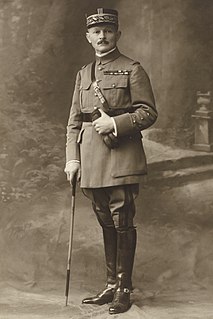 W
WMaxime Weygand was a French military commander in World War I and World War II.